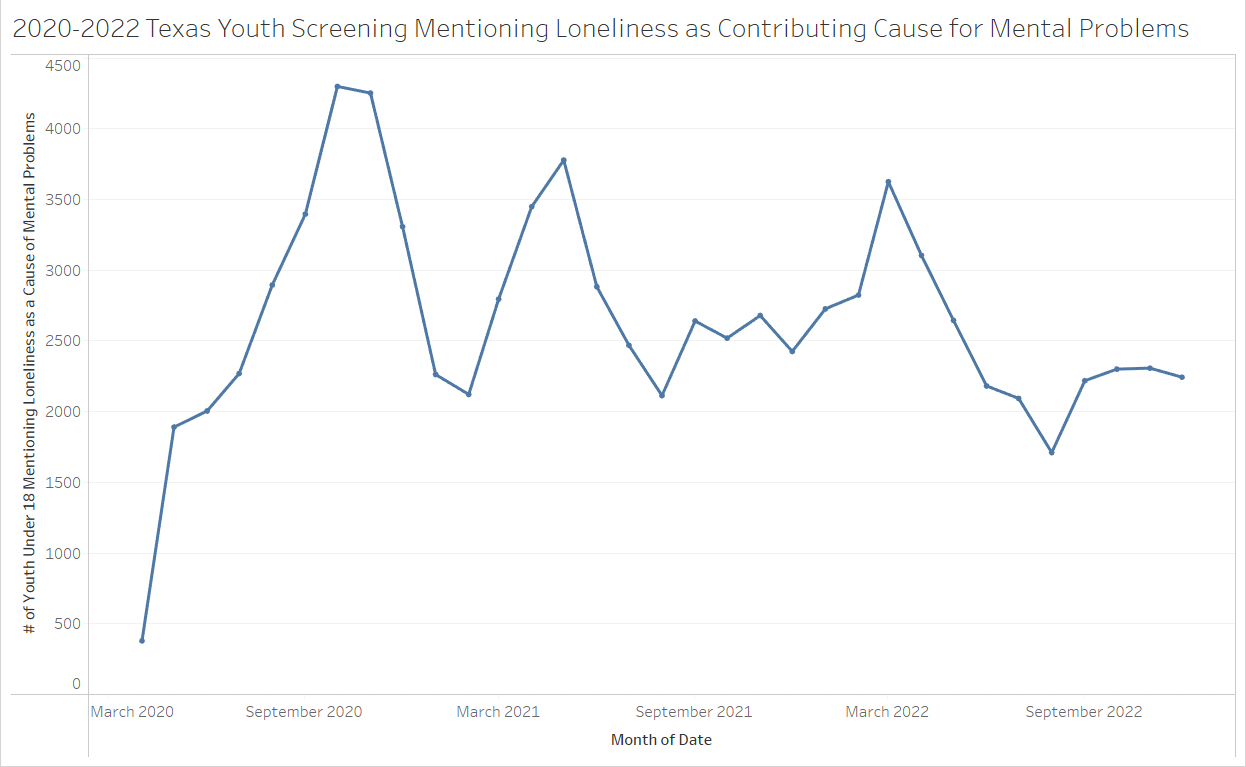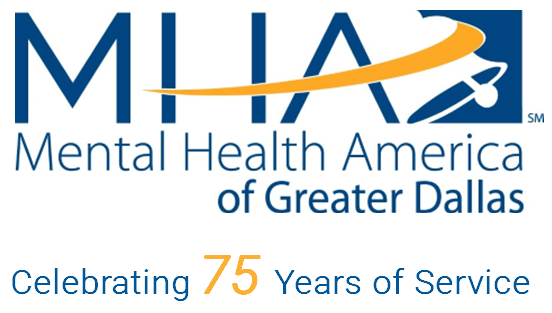2020-2022 Texas Youth Screening Mentioning Loneliness as Contributing Cause for Mental Health Concern
During 2020-2022, Texas youths experienced heightened rates of loneliness.
The effects of prolonged isolation, disrupted routines, and limited social interactions have had a significant impact on the mental well-being of young individuals in Texas.
Understanding Youth Loneliness
Loneliness and isolation have demonstrated profound negative impacts on mental health and overall well-being. Youth loneliness refers to a sense of isolation and social disconnectedness experienced by young individuals, often due to a lack of meaningful relationships or a sense of belonging. It can result from various factors, including academic pressures, social media usage, family dynamics, and geographical isolation.

In 2022, over 29,989 (N=29,989) Texas youths reported loneliness as a cause of mental problems, representing a 21% increase over the number of youths who reported loneliness in 2020.
The following findings emerged from an analysis of the over 86,833 youths who took a mental health screen in Texas from March 2020 to December 2022.
- Self-reported loneliness rates among individuals under the age of 18 exhibit a notable increase during the periods of returning to school and in the midst of school semesters.
- Conversely, there is a discernible decrease in loneliness rates during the summer months and around the holiday seasons.
Addressing Youth Loneliness
To combat loneliness, Mental Health America of Greater Dallas (MHA) participates in educational campaigns and community outreach programs to raise awareness about mental health concerns, reduce stigma, and promote mental wellness. They provide resources and information to help individuals and families better understand mental health conditions and available support.
Additionally, MHA Dallas offers peer support programs where individuals with lived experience of mental health challenges provide encouragement, empathy, and practical guidance to their peers. These programs create a safe space for individuals to share their experiences, seek support, and foster a sense of community.
To address loneliness, foster social interaction, and provide emotional support; MHA Dallas offers school-based programs that foster social interaction and provide emotional support. The We Help Ourselves (WHO) program is an empowerment program designed for public and private school-age children. The WHO program empowers youths to learn the skills to advocate for themselves, stay safe and happy, and make good decisions based on knowledge and a strong internal value system.
About MHA Screening
Taking an online screening is one of the fastest and easiest ways to determine if you’re experiencing symptoms of a mental health condition. MHA Screening provides tools for people to understand and make decisions about their own mental health. Our work supports individuals at the earliest stages of concern. This period is when individuals are most vulnerable to poor outcomes but also when intervention has the best chance of building resiliency and change. The voluntary data from users helps to identify data-driven population health efforts toward prevention and early intervention of mental health conditions, promotion of mental well-being, and equitable allocation of mental health treatment and support.
The MHA screening process has three core values:
- Meet people where they are.
- Focus on mental health, not mental illness.
- Provide a starting point for the mental health journey.
https://screening.mhanational.org/screening-tools/?ref=MHADallas
More about the WHO program: https://mhadallas.org/who-program/
